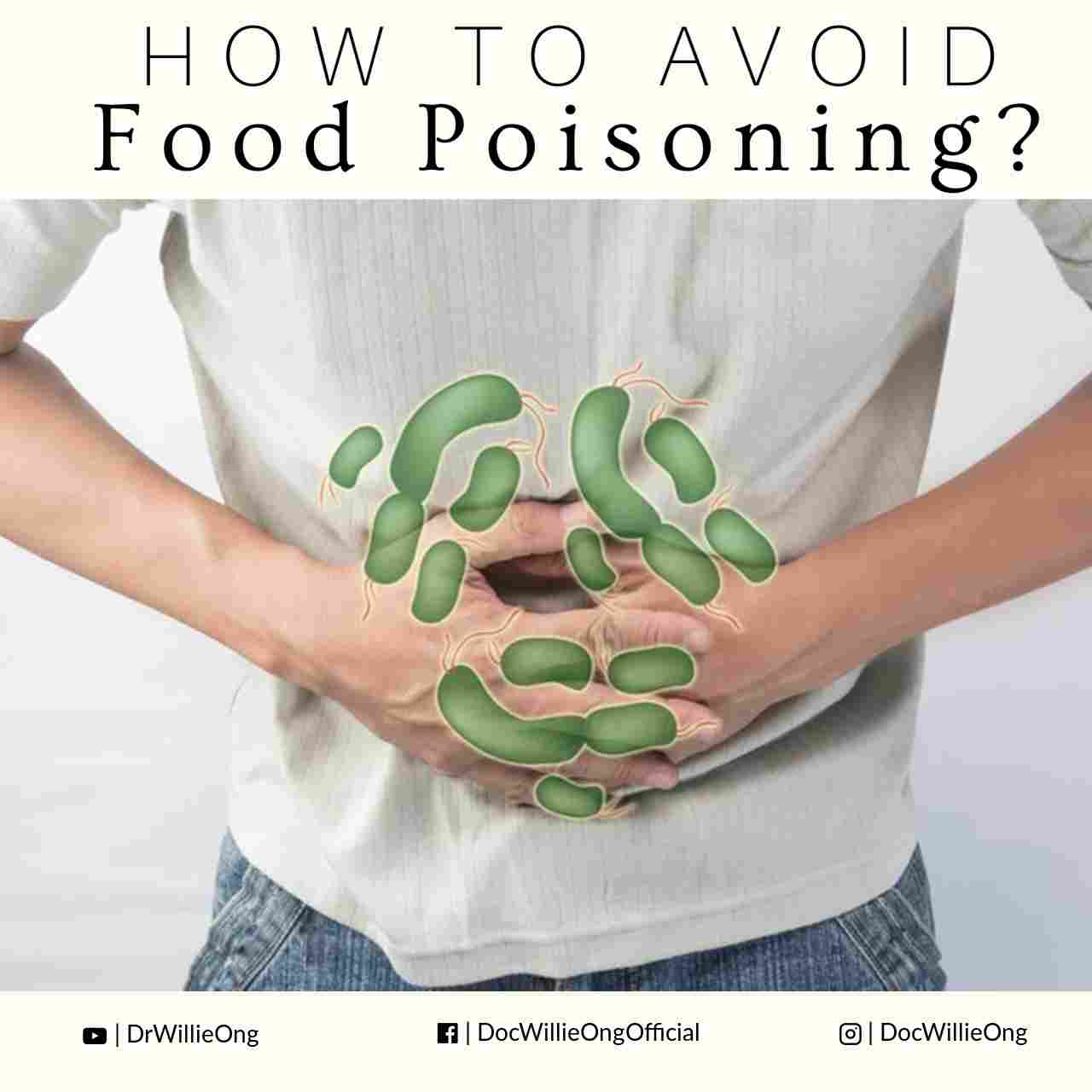By Dr. Willie Ong
“150 people hospitalised after eating cheese sandwich in an office party.” “30 school children die after eating street food.” Like terrorists, deadly bacteria and toxins are waiting to strike you. Brought to you by your favourite waiter and sold at your local canteen, these invisible, tasteless microbes may be hiding in the fruit salad, fried noodles or pastries. Make no mistake, food poisoning could hurt, maim, even kill. So keep these tips in mind:
- Avoid or limit eating mayonnaise and milk-based foods.
Especially during the hot weather, the first foods to get spoiled are those with milk, mayo and cheese, like the fruit salads and the cheese whiz. If you can’t avoid the temptation, just take in a small scoop and just in case it’s bacteria-infested, you’ll still survive to tell the tale.
- Use your senses.
First, the nose knows. If it smells funny, fishy or foul, then don’t eat it. Second, use your taste buds. If the fried noodles taste like a familiar eight-legged vermin, then spit it out. Cockroaches have a way of getting themselves cooked. Third, seeing is believing. Look inside vegetable leaves and overripe mangoes for those white, crawly maggots. And make sure that dark spot on the meat are black pepper and not vermin eggs.
- Avoid poorly-cooked meat.
For some people, ordering a rare steak makes them feel sophisticated. But there’s nothing special in having beef tapeworms living in your gut similar to the movie Aliens. I could name you the local regions where beef tapeworms, pork tapeworms and fish tapeworms lie rampant. And despite what others say, the parasites in raw fish (kilawin) or sushi cannot be killed by vinegar or wasabe. So, the next time you order your steak, say “well done.”
- Choose very hot items over cold foods.
Studies show that Chinese people have less incidence of stomach disorders as compared to the Japanese. Experts think this is because the Chinese like their tea, rice and food piping hot, unlike the Japanese with their cold sushi and sashimi. Hot chicken soup warms the stomach but reheated food is a no-no.
- Choose dry over wet foods.
Wet food items spoil faster than dry ones. Limit eating the uncooked sauces, like gravy and taco sauces. Fried chicken, fried pork chop, and grilled fish take a longer time to spoil. Incidentally, these are the perfect items to bring to your summer outings. As mentioned, food items with milky sauces and those exposed to the hot weather spoil quickly.
- Take a few safe dishes only.
You have been in this situation before. A friend invites you to his humble home where a caterer has prepared eight dishes. Suddenly, you notice a few flies feasting on the beef steak and sweaty waiters pouring soup in plastic gallons. So how can you be courteous while avoiding an upset stomach?
Answer: Play the percentages. In a food poisoning outbreak, there is usually just one spoiled food. Given eight suspicious delicacies, just take in more of the safer items and avoid or limit the doubtful items. For fillers, plain rice is safer than fried rice.
- Order vegetables in safe places only.
Vegetables are rich in vitamins and healthy fiber but the problem lies in food preparation. The infamous Typhoid Mary, so named because she carried the typhoid bacteria in her stools, killed her employers by insisting on preparing vegetables salads with poorly-washed hands. Typhoid, parasites and other microbes are very prevalent and lie untreated in many Filipinos.
- Only bottled or canned drinks please.
Tap water is dangerous. Leaky Tondo pipes gave rise to a cholera outbreak in 2003, killing eight people. So to be safe, use bottled, boiled or distilled water only. For juice lovers, make sure they are using distilled water.
- Avoid or limit street food.
For fishball, quail eggs and “dirty” ice cream fanatics, I have some bad news. They are called “dirty” for a reason. The sauces are a haven for bacteria: the mouth-watering shrimp paste (bagoong) for the green mango, and the recycled fish ball sauce where everybody dips in delight.
Ideally, all food handlers must pass stringent tests of their blood, urine and stools, but who would shoulder the additional costs? Hence, choose where and whom you buy your food from.
- Eat home-cooked meals.
Mother or wife knows best. Eating at home is of course the safest if you take a few precautions, too. Like refrigerating left-over meals as soon as possible and discarding them in a few days. Finally, remember the basic rule: wash your hands before and after eating.
So eat safe and eat smart. Cleaner food items may cost a bit more, but it’s better to be safe than sorry.



